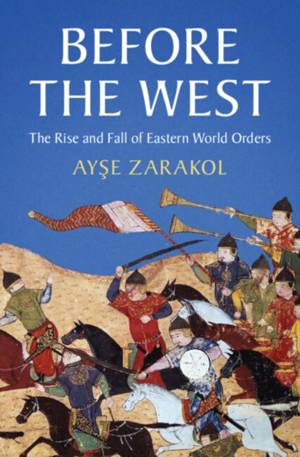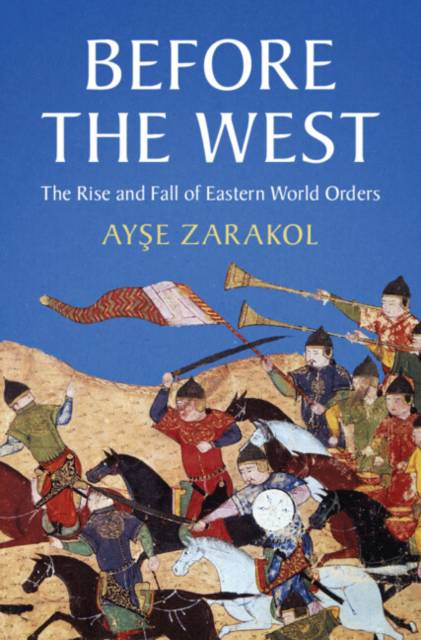
- Afhalen na 1 uur in een winkel met voorraad
- Gratis thuislevering in België vanaf € 30
- Ruim aanbod met 7 miljoen producten
- Afhalen na 1 uur in een winkel met voorraad
- Gratis thuislevering in België vanaf € 30
- Ruim aanbod met 7 miljoen producten
Zoeken
€ 180,45
+ 360 punten
Uitvoering
Omschrijving
How would the history of international relations in 'the East' be written if we did not always read the ending - the Rise of the West and the decline of the East - into the past? What if we did not assume that Asia was just a residual category, a variant of 'not-Europe', but saw it as a space of with its own particular history and sociopolitical dynamics, not defined only by encounters with European colonialism? How would our understanding of sovereignty, as well as our theories about the causes of the decline of Great Powers and international orders, change as a result? For the first time, Before the West offers a grand narrative of (Eur)Asia as a space connected by normatively and institutionally overlapping successive world orders originating from the Mongol Empire. It also uses that history to rethink the foundational concepts and debates of international relations, such as order and decline.
Specificaties
Betrokkenen
- Auteur(s):
- Uitgeverij:
Inhoud
- Aantal bladzijden:
- 300
- Taal:
- Engels
- Reeks:
Eigenschappen
- Productcode (EAN):
- 9781108838603
- Verschijningsdatum:
- 3/03/2022
- Uitvoering:
- Hardcover
- Formaat:
- Genaaid
- Afmetingen:
- 152 mm x 229 mm
- Gewicht:
- 607 g

Alleen bij Standaard Boekhandel
+ 360 punten op je klantenkaart van Standaard Boekhandel
Beoordelingen
We publiceren alleen reviews die voldoen aan de voorwaarden voor reviews. Bekijk onze voorwaarden voor reviews.











